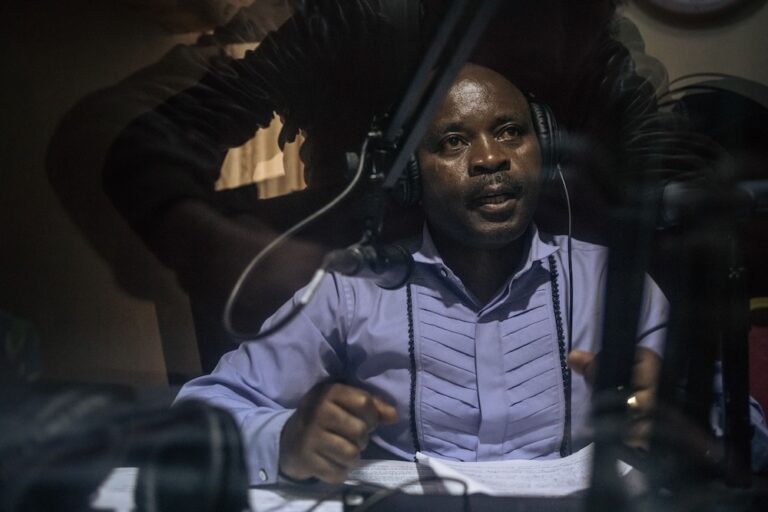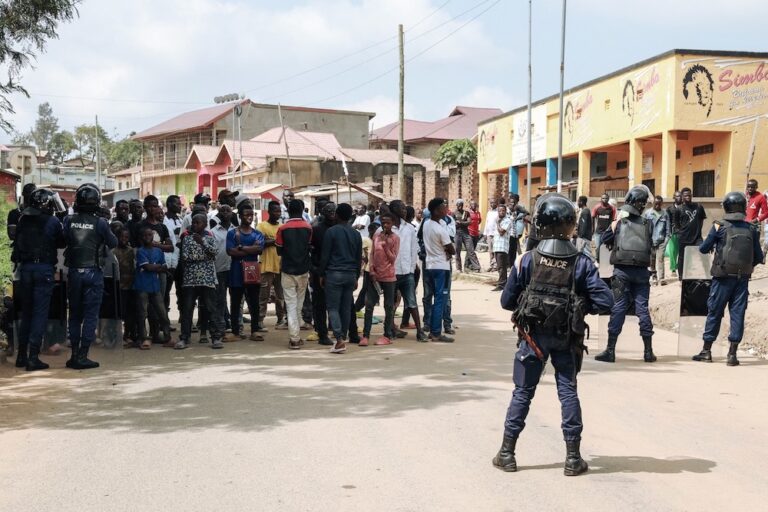On 15 November 2016, a group of armed men in military uniforms stormed the residence of Marcel Lubala Kalala and killed him. Journaliste en Danger has called on the provincial and judicial authorities to expeditiously investigate the matter.
This statement was originally published on afexafrica.org on 17 November 2016.
The African Freedom of Expression Exchange (AFEX) joins its member, Journaliste en Danger (JED), to denounce the gruesome murder of journalist Marcel Lubala Kalala in Mbuji-Mayi, capital of Kasia Oriental province, in the Democratic Republic of Congo.
JED reports that a group of armed men in military uniforms on November 15, 2016, stormed the residence of Marcel Lubala Kalala and killed him.
According to the report, after the intruders overpowered all the members of his family present at the scene, they tied Marcel’s wife, while her children looked on. As he tried to escape, the assassins shot Marcel three times in the neck and the stomach. The murderers dragged Marcel’s body, bathed in blood, into his bedroom and left a note that read “finally, we got him!”
Marcel Lubala was reportedly summoned to the office of national intelligence, Agence Nationale des Renseignements (ANR) the eve of his assassination over a “family affair”.
In a statement issued on November 16, 2016, JED expressed shock at the assassination of the journalist in DRC and has called on the provincial and judicial authorities to expeditiously investigate the matter.
AFEX joins JED and the media fraternity in Mbuji-Mayi province in observing today, November 17, 2016 as a “Day without Press” in protest of the assassination of their colleague.
About 14 journalists have been killed in circumstances that have never been unraveled over the past 10 years in the DRC.
The gruesome murder of Marcel Lubala Kalala is a huge step backwards for freedom of expression. AFEX condemns the murder of the journalist and urges the police to investigate the matter. We also call on local, regional and international bodies to condemn this barbaric act and pressure the government of DRC to investigate the matter and make the findings public.
Until his death, Marcel Lubala Kalala worked with the state-owned Radio Télévision Nationale Congolaise. He was 59 years old.



